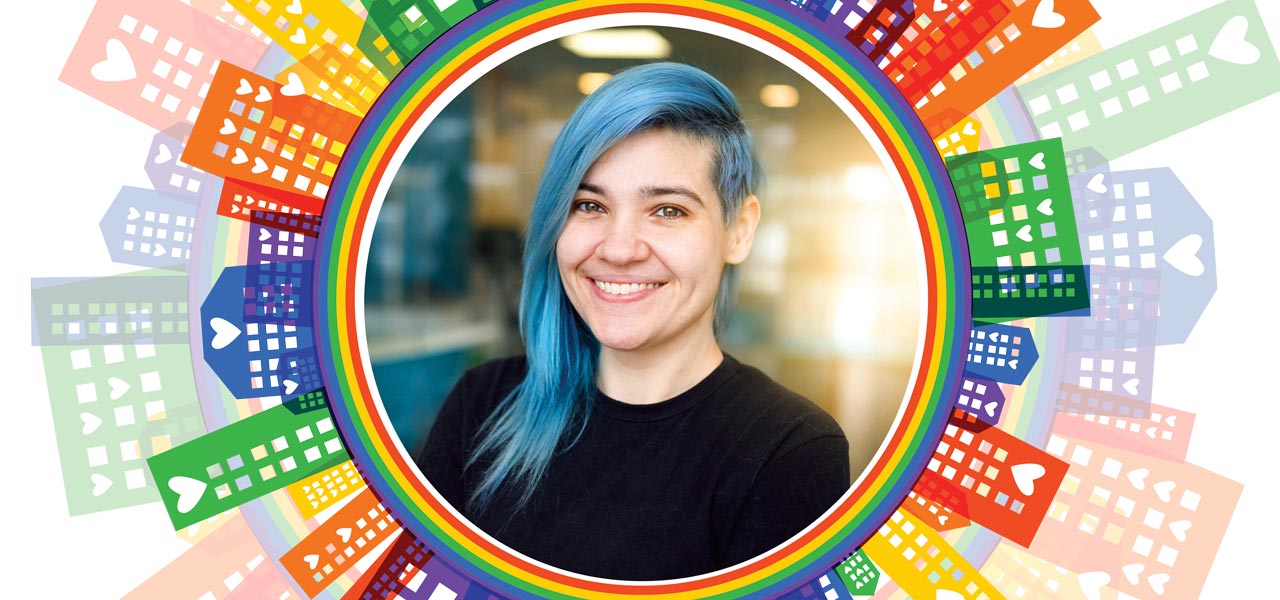This exercise is part of a new, evidence-based curriculum developed by Nina Nechay, MS, LPC, NCC, Senior Primary Therapist at the Princeton outpatient site, and Rachel Friedman, MA, Psychology Doctoral Intern at Princeton House. Open to all patients at the site, the eight-week psychoeducational group is designed to build awareness and provide an inclusive, confidential, and supportive environment for all people across the gender identity and sexual orientation spectrums.
“The idea evolved as we considered Princeton Health’s overall diversity and inclusion initiatives,” explains Nechay. “We examined the needs and issues facing our own patients, and formulated ways to help them feel not only more integrated and involved, but also safe, valued, and heard.”
Incorporating feedback from participants, the interactive curriculum addresses various learning styles through multimedia tools like YouTube videos, role playing, journaling, and collaborative thinking. Focus areas include:
- The history and evolution of gender identity and sexual orientation language
- The relationship between gender identity/sexual orientation and issues like depression and anxiety
- How to cope with invalidation and encourage self-validation and self-compassion
- Effectively communicating needs to professionals regarding one’s identity
- Learning to live an authentic life
“Because people identifying as LGBTQ can be chronically invalidated by others, they may not have the tools to advocate for and express their identity,” says Friedman. “This curriculum helps participants recognize that invalidation isn’t the norm. It also fosters self-compassion, understanding, and empowerment.”
Another important aim of the group is to welcome LGBTQ allies: those who don’t identify as LGBTQ but want to learn more about connecting with those who do. The curriculum facilitates a conversation between members of the LGBTQ community and their allies on how to best support one another. This type of open dialogue can be particularly valuable for patients who might struggle to relate to family members identifying as LGBTQ.
"We’re really creating a home base where everyone can feel comfortable,” adds Friedman. “It’s exciting to see new conversations and skills evolve in the context of an established treatment program.”
For more information about outpatient services at Princeton House, visit princetonhouse.org or call 888.437.1610.
Article as seen in the Spring 2020 issue of Princeton House Behavioral Health Today.



